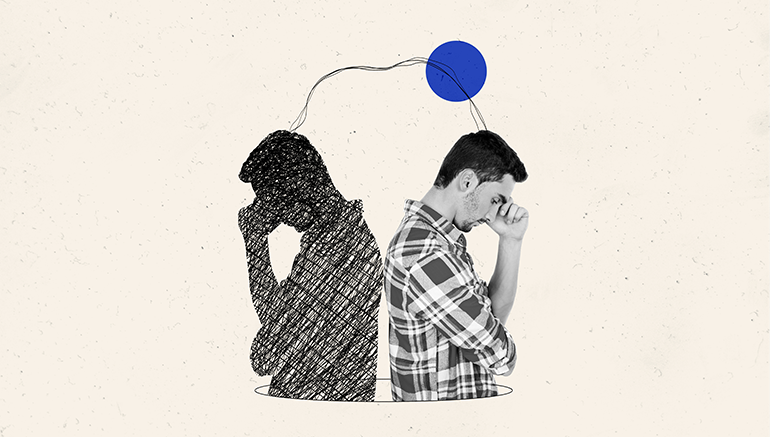When it comes to maintaining a positive and fulfilling work environment, HR professionals are usually first in the line of duty. But who looks after the mental health challenges that they themselves go through? After all, they too are employees who work under tremendous pressure, with a number of roles and responsibilities to shoulder.
Here’s a rundown on the sort of mental health challenges that HR professionals face, and the adverse effects they could have.
The Effects of Mental Health Challenges on HR Professionals
1. Demotivation
Mental health is still quite a taboo topic, so much so that people refrain from discussing it in their day-to-day lives. Naturally, this is heightened in a work environment, particularly in a workspace that doesn’t foster these conversations.
When it comes to HR professionals, they have to deal with another layer of stigma surrounding their job roles. In fact, data from SHRM Research shows that 52% of HR professionals would not recommend a job in HR to someone struggling with their mental health!
“HR doesn’t do much beyond administration and hiring-firing, working in HR doesn’t require any special skills”... We’ve all heard these stereotypes before, thanks to their prevalence among the general public. Brought up time and again in the workplace, they can make HR professionals feel less of themselves, creating self-doubt, lowering confidence, and impacting motivation. If they go unnoticed for too long, they can have a big implication on mental well-being too.
2. Drop in Productivity
From improving employee engagement and crafting the company’s culture to navigating employee complaints, the job role of an HR professional is getting increasingly multi-dimensional. This brings us to the old adage, ‘All work and no play makes Jack a dull boy’. The rise in responsibilities and work hours doesn’t always imply better outcomes or productivity. Instead, it’s known to reduce productivity, increase fatigue, disrupt sleep, cause customer dissatisfaction, and more.
What’s worse, the poor mental health of HR professionals directly results in their productivity levels taking a hit, snowballing into overall losses. The inability to work efficiently and complete the given responsibilities reflects on their overall performance. This is when the company starts losing its revenue and clientele.
3. Mental Breakdowns
The job of an HR professional is no easy one, and cases of extreme stress and excessive workload can cause mental breakdowns. The effects of a breakdown can be long-lasting and pressing. Employees won’t be able to care about their work or tasks, while recovering can mean having to overcome the worry of catching up on all the time they lost.
In addition, there’s a general loss of energy after a mental breakdown, making it tough to perform even familiar and simple tasks. This can have a domino effect of a loss of self-worth and esteem, threatening another spiral into a breakdown for the affected individual.

4. Burnout
One too many breakdowns is a slippery slope towards complete burnout – something that can be difficult to overcome. A serious issue, it puts the individual in a state of emotional or physical exhaustion, which includes loss of identity and a sense of reduced accomplishment. If this progresses for a long time, it leads to depression, insomnia, anxiety, and other mental health issues.
HR professionals are known to have excellent interpersonal skills; after all, it’s a part of their responsibilities at work. Maintaining constant coordination within the team, communicating, encouraging teamwork, being empathic, and keeping a positive attitude – all of it can get taxing when they’re not in the right mental space, leading to burnout.
5. Serious Mental Health Issues
Left ignored and untreated for long enough, any mental health challenge can grow into worrisome illnesses. From depression to chronic anxiety, they all have a severe impact on the individual. The employee suffering from such issues has to deal with the direct repercussions. Eventually, it also affects the company's work culture and productivity if not dealt with in time.
6. Affects Physical Health
Mental and physical health are closely related, and if one goes for a toss, the other gets affected. According to recent data by SHRM Research, 75% of respondents admitted that working in HR is “emotionally exhausting”. This exhaustion can easily translate into not just more severe mental issues but a physical drain as well. Headaches, digestive issues, diabetes, asthma, cancer, cardiovascular disease, and other chronic diseases are some of the ways physical health can be affected.

7. Increased Risk of Job Flight
Employees who are content with their jobs and have supportive social networks tend to be loyal to the organization. But, employees who struggle with mental health issues might not be happy or satisfied with their job, and could also feel undervalued and exploited at times. This increases the risk of job flight. An unhappy employee is more likely to leave the company in quest of a better opportunity elsewhere if no measures are taken to make them feel valued.
This duty of working towards a positive work environment is carried out largely by HR departments. Naturally, each individual within the department should also feel a sense of belonging and self-worth to be able to uphold the larger system.
Final Thoughts
The Asia Mental Health Index Report identified that a whopping 82% of employees in Asia have a medium to high mental health risk profile. Instilling empathy, encouraging conversations around mental health, and using an ESS portal to improve employee engagement are just a few of the many solutions at hand. Plus, mental health challenges adversely affect HR professionals even when organizations foster a good workspace. No matter the size of the company, occasional check-ins and resources for the HR Department can always help bolster self-esteem and boost morale!
FAQs
- What is the Role of HR in Mental Health and Well-being at Work?
The HR department is one of the cornerstones of maintaining a healthy work environment and ensuring the work culture doesn’t negatively impact the employees. When employees suffer from mental health issues linked to work, the range of effects is severe and vast. By extension, a company with a negative reputation won’t attract good talent, which is another HR responsibility. Curbing this domino effect is something that the HR department must attend to.
- What is the Hardest Part about Working in HR?
Among the challenges that HR professionals face, one of the foremost is being able to balance everything. Recruiting and training the best in the market while creating a healthy work culture, handling employee issues, and staving off burnout are all as important as they are tricky. The pressures of shuffling between these tasks can make the role of an HR employee very challenging and taxing.
- How to Become an Effective HR Professional?
Working in an HR department requires one to hone skills like effective communication, assertiveness, empathy, problem-solving, and decision-making. Alongside, looking after one’s physical and mental health is essential since these can suffer due to the emotional availability that the job demands.






